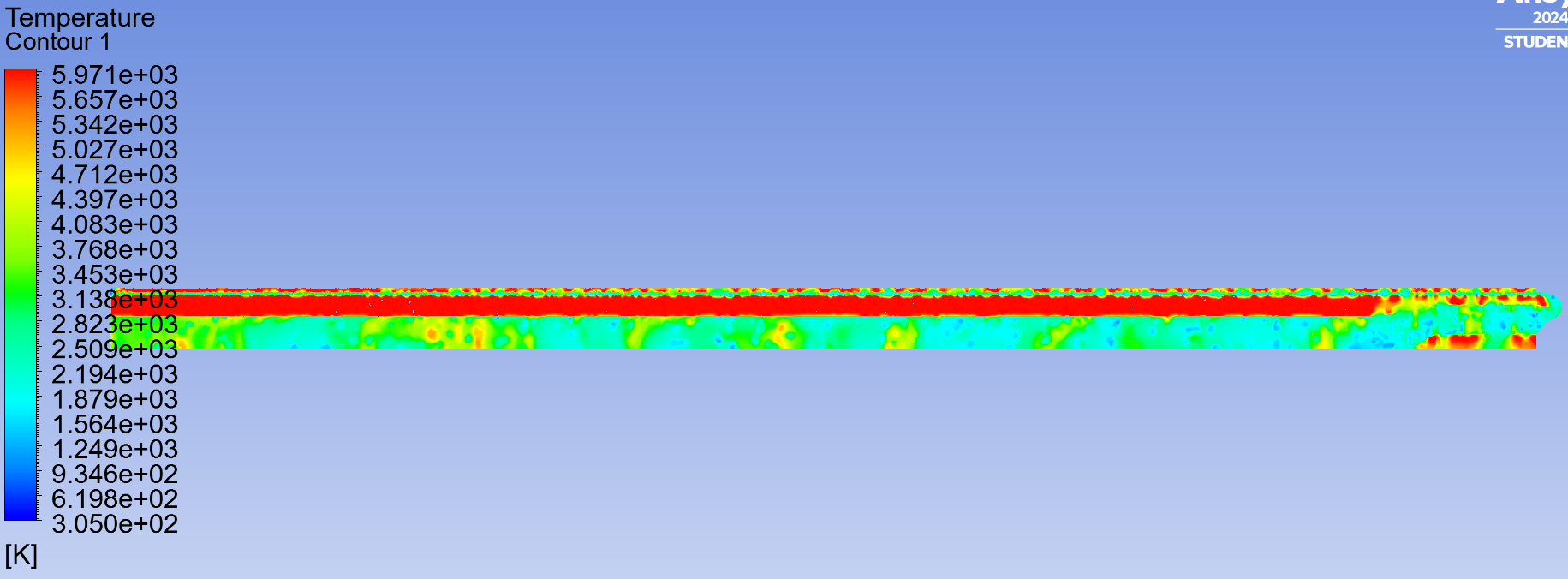-
-
August 23, 2024 at 8:14 pm
Nicholas DeFranzo
SubscriberHello, I am trying to simulate a rotating region with a powerful volumetric heat source. There is a flow path going up and around this body internally which would be subject to conjugate heat transfer and the spinning wall. I doubled checked all of my boundaries to ensure that they are coupled thermally and that a moving wall boundary condition is there. I applied Frame motion on the cell zones that are spinning and moving wall boundaries at the interfaces between solid and fluid (gas). I split my model into a 1/4 size and used periodic boundaries at the cut surfaces.
The main problem is that it seems like there is extremely little heat transfering from the spinning solid to the fluid when I use the pressure-based solver. Other simulations with the density based showed the heat went from solid to fluid easily. I am not sure why this is happening. I thought it had to do with the moving wall boundary at first so I turned off all rotation and did simulations with pressure and density based solvers but the results were still quite similar: the pressure-based showed little heat transfer. The viscous heating effect from the density based solver also creates these pockets of heat in the adjacent solids which makes the contours harder to interpret. Is there anyway to manually turn off viscous heat for density based too? I used UDFs for my solid and fluid material properties.
Density based:
The mostly red regions are the solids, and the fluid path turns around 180 degrees at the far right. The outlet is bottom left and the inlet is top left between the two red zones.
Pressure based:
-
August 23, 2024 at 8:25 pm
-
August 27, 2024 at 9:09 am
Rob
Forum ModeratorI'm not sure I'd trust either result looking at those contours. What boundary conditions have you got between wall & fluid and at the rotating boundary?
-
- You must be logged in to reply to this topic.



-
4888
-
1587
-
1386
-
1242
-
1021

© 2026 Copyright ANSYS, Inc. All rights reserved.










